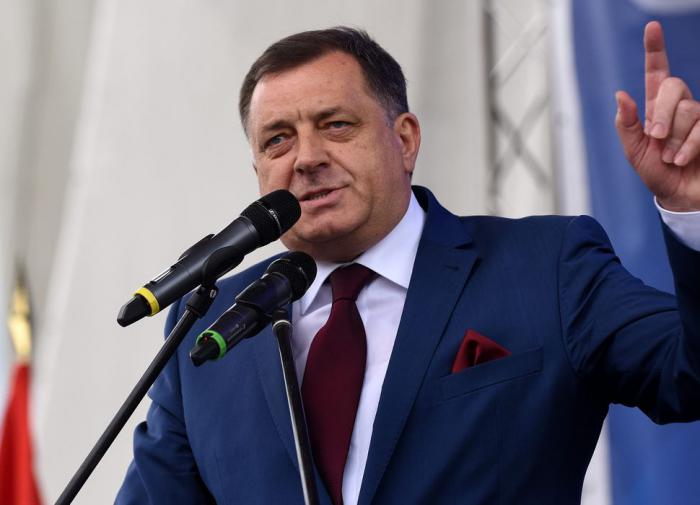Republika Srpska's Dodik needs Putin's helping hand
Milorad Dodik, the leader of the Republika Srpska in Bosnia, arrived in Moscow at the height of his conflict with the West. Is it about time to return the Russian airborne forces to Bosnia?

Republika Srpska needs help from Russia and China
"Tomorrow [November 30] I am going to Moscow, I intend to discuss with [Russian President Vladimir] Putin the steps that we are going to take," TASS quoted Dodik as saying.
The leader of the Bosnian Serbs is confident that Russia and China will help if the West imposes sanctions on the republic. In an interview with The Guardian, he referred to his upcoming meeting with Putin and noted that his plans for the republic's sovereignty, "which sparked protests in London, Washington, Berlin and Brussels," would be implemented.
"When I go to Putin, there are no requests. He simply says: "How can I help?" No matter what I may have discussed with him, I have never been deceived,” the Serb leader in Bosnia said.
He came across similar attitude in China during his communication with Xi Jinping, Dodik added.
Republika Srpska wants to be a sovereign country
Under the leadership of Milorad Dodik, the Serbian part of Bosnia and Herzegovina (BiH) has recently withdrawn from several federal institutions of the state union, which, according to the report, which was sent to the UN by the new High Representative, Christian Schmidt, posed a serious threat to the 1995 Dayton Peace Agreement. Like Moscow, Banja Luka (Banja Luka is the second largest city in Bosnia and Herzegovina and the largest city of Republika Srpska. Banja Luka is also de facto capital of this entity — ed.) does not recognize Schmidt's appointment by the Peace Implementation Council and requires the approval from the UN Security Council.
The 1995 Dayton Peace Agreement was reached under the patronage of the United States. According to it, Bosnia and Herzegovina consists of two entities — the Republika Srpska and the Federation of Bosnia and Herzegovina, which consists mainly of Croats and Bosnian Muslims (Bosniaks). The country is governed by the presidium of three heads of entities and supervised by the UN High Representative. Dodik criticizes the agreement claiming that foreigners interfere in internal affairs of the country without permission.
In 2017, Dodik was barred from traveling to the United States and his accounts (if any) were frozen after he arranged a referendum to celebrate the Republika Srpska Day — the date in 1992 when the Bosnian Serbs declared their state in Bosnia.
He recently told Gabriel Escobar, the US Undersecretary of State, that he could only care less about the threat of further action. According to Dodik, Germany's proposals for financial sanctions were not going to stop him either.
"Of course, I am not indifferent, but I was not elected as a coward,” he said, speaking in Banja Luka.
The leader of the Bosnian Serbs recognises the massacre in Srebrenica in 1995, when the Bosnian Serbs killed about 8,000 Bosnians, the number of the Serbs killed by the Bosnians was at least the same, Dodik claims.
Not that long ago, High Representative Valentin Inzko, who stepped down from his office last summer, used his powers to outlaw the denial of the genocide in Srebrenica. Afterwards, Dodik withdrew representatives of the Republika Srpska from central offices, and proposed to form his own army in October.
NATO troops or Russian troops in the Republika Srpska?
Former British Foreign Secretary and former leader of the Conservative Party, William Hague, in an article for The Time on November 16, said that Dodik had been undermining the state of BiH for years while enjoying the support from Russia and Serbia, while Moscow uses this to block the Euro-Atlantic integration.
According to Hague, Dodik is heading for the secession. Therefore, the British diplomat noted, NATO should send its troops to BiH.
Let's see how Putin can help the Republika Srpska. Russia had had an airborne battalion in Bosnia as part of the international peacekeeping contingent (the city of Ugljevik), which was redeployed to Pristina on June 11-12, 1999, which ultimately made it possible to deploy a Russian peacekeeping contingent in Kosovo.
Subscribe to Pravda.Ru Telegram channel, Facebook, RSS!


